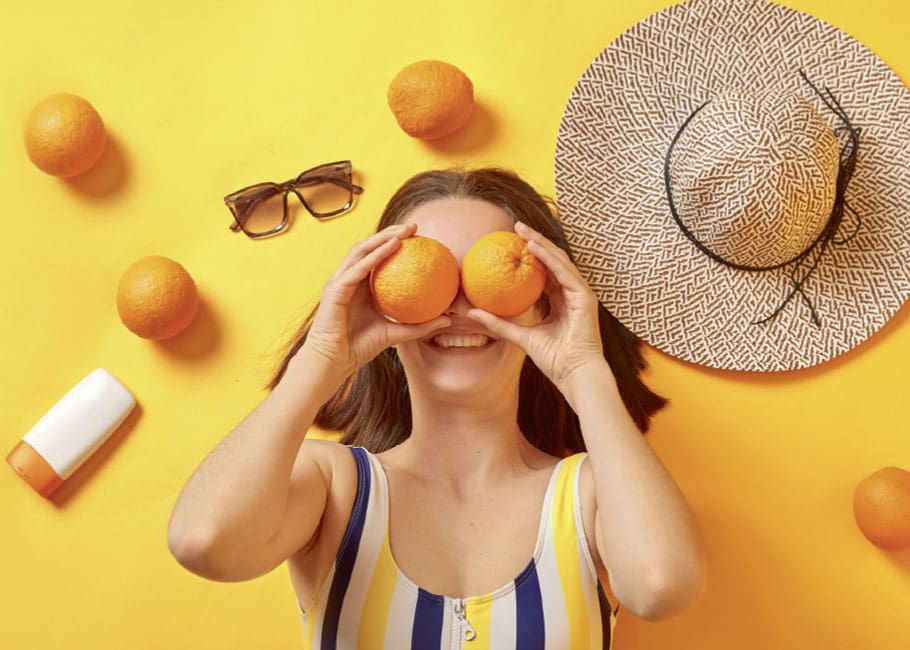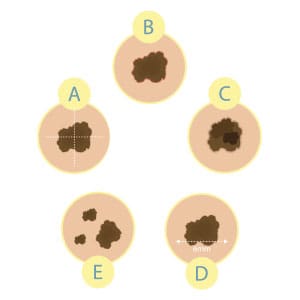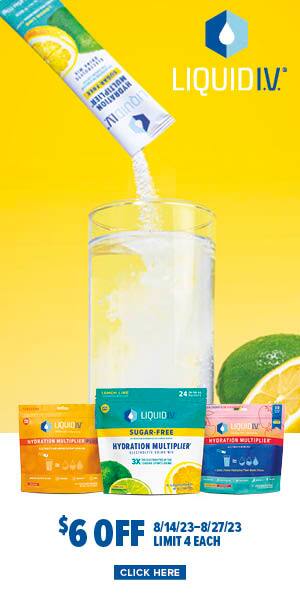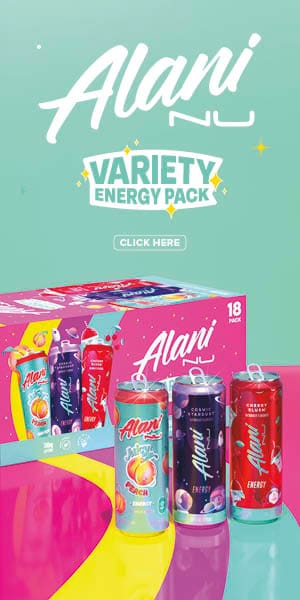For Your Health

© sementsova321 / stock.adobe.com
Avoid the burn
Help boost your body’s natural sun protection factor through your diet
by hillary sachs
The sun’s power gives energy to all living things. It increases our vitamin D levels and helps maintain proper circadian rhythms and cortisol levels. However, exposure to its UV rays is the primary cause of skin cancer. Most skin care experts agree that sunscreen and sun-protective gear are the best ways to minimize UV damage while in direct sunlight. You can also help protect your skin from the inside, as including certain foods in your diet may also increase your body’s natural sun protection factor (SPF). Here’s a look.
Carotenoids
Carotenoids give foods their orange, yellow and red colors. Think carrots, pumpkin, squash, pears, peppers and even egg yolks. There is evidence that carotenoids may help alleviate UVA skin damage and provide skin protection from the sun. Dietary sources—like those mentioned—are recommended. According to an article published in Photochemical & Photobiological Sciences, even just a half-cup of carotenoid-rich foods per day can make a difference in your skin’s natural ability to protect itself from the sun. Note: When you eat carotenoid-rich foods, you absorb more of the phytochemical through cooked foods—like tomato paste, tomato sauce, cooked carrots, etc.—rather than through raw sources.
Lycopene
Lycopene is a carotenoid that gives many fruits and vegetables their red color. Think watermelons, tomatoes, grapefruits, guavas, papayas and red peppers. Lycopene is touted for many health benefits, including protection against prostate cancer, but few realize that it also may increase the body’s natural SPF and protect against oxidative damage caused by the sun.
In a 12-week study, daily intake of 8 to 16 milligrams (mg) of lycopene, from either food (there is about 8 mg of lycopene in 1 cup of cooked tomatoes, according to a study from Rutgers) or supplements, helped reduce the intensity of skin redness following exposure to UV rays by 40% to 50%. A 2011 study published in the Journal of Nanobiotechnology found that a combination of lycopene and propolis (a substance derived from beeswax and resins and waxes from tree buds, and touted for its health benefits) applied topically improved the skin’s ability to block UV rays. Note: Lycopene is fat soluble, so it needs to be eaten with a source of fat to absorb it.
Resveratrol
Resveratrol, the polyphenol found in red grapes, has been cited by several studies as increasing the body’s SPF. In a small human study published in 2022, it was found that one-third of all volunteers had greater resistance to UV radiation after consuming a grape powder equivalent to three servings of grapes (about 2¼ cups) per day for two weeks. The mechanism is still being explored; it may have to do with changes to the microbiome and activation of certain genes.
Tried and true
While increasing consumption of foods that can boost your natural SPF can be helpful, nothing can take the place of formal skin protection:
- Wear clothing that protects as much skin as possible, a wide-brimmed hat and sunglasses.
- Limit direct sun exposure during midday, between the hours of 10 a.m. and 4 p.m.
- Wear broad-spectrum sunscreen that provides protection against both UVA and UVB rays, with an SPF of at least 30. Reapply as directed.
- Avoid tanning beds and sunlamps.—HS

Photo caption
© Photo Credit / Stock.adobe.com
Perform skin self-exams
Think “ABCDE” to remind yourself what to look for:
Asymmetry. If the shape of one half doesn’t match the other half
Border. Irregular, ragged, notched or blurred edges
Color. Areas of uneven coloring, including black, brown, tan, white, gray, red, pink or blue
Diameter. A change in size
Evolving. A mole that has changed over a few weeks or months
In addition, get an annual skin exam and take vitamin D through supplements as needed.—HS

© Jessica Reiss photography
Hillary Sachs (hillarysachsnutrition.com) is a dietitian in Scotch Plains, New Jersey.
Costco Connection: You’ll find foods rich in carotenoids, lycopene and resveratrol, as well as sunglasses, SPF lotions and sprays, and sun-protective clothing, in Costco warehouses and at Costco.com.



